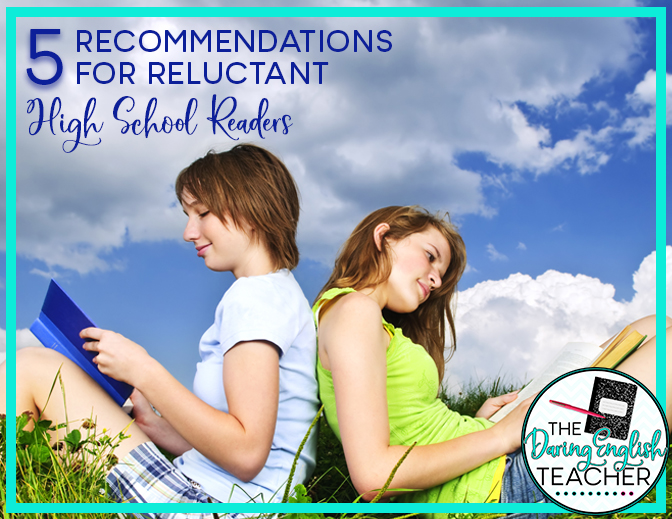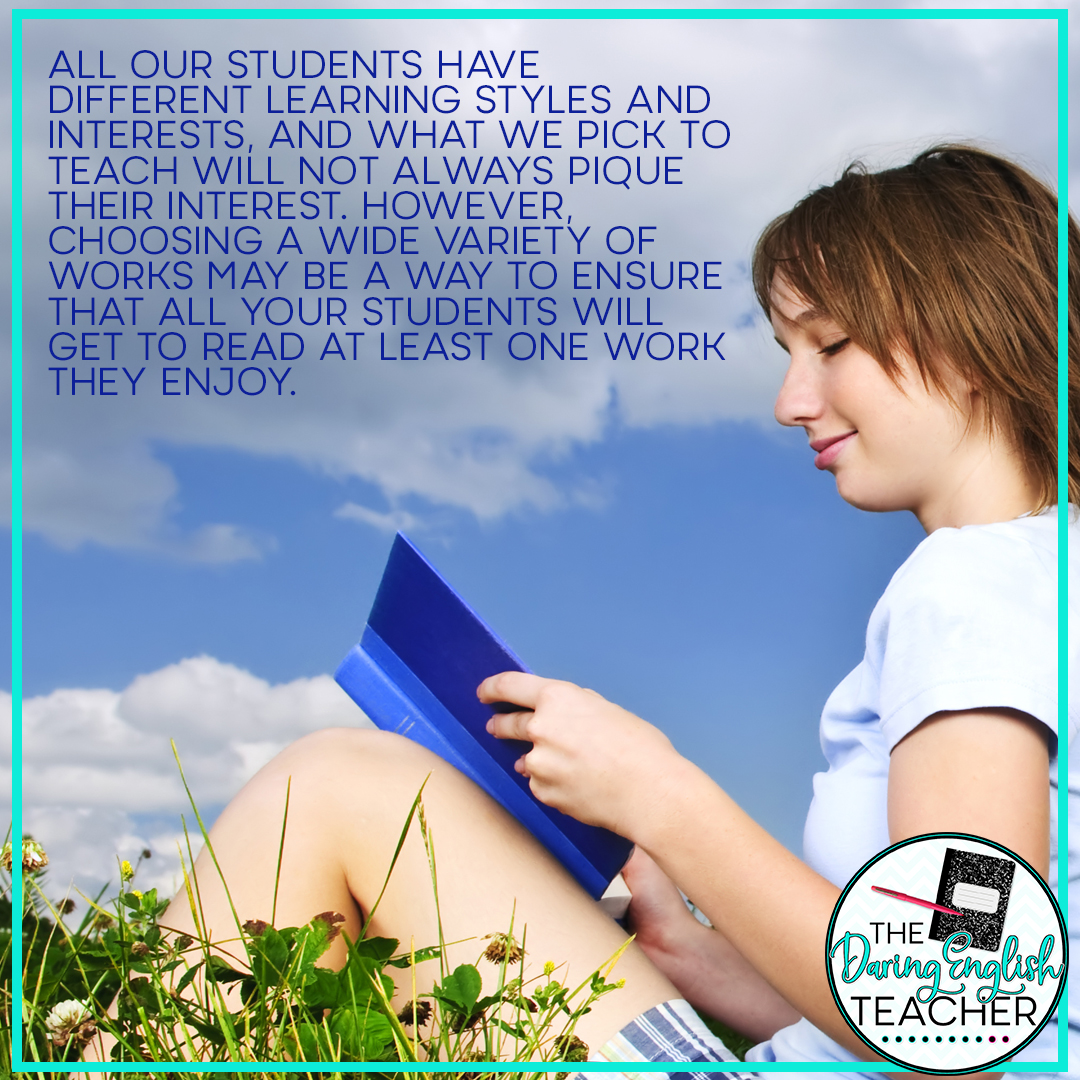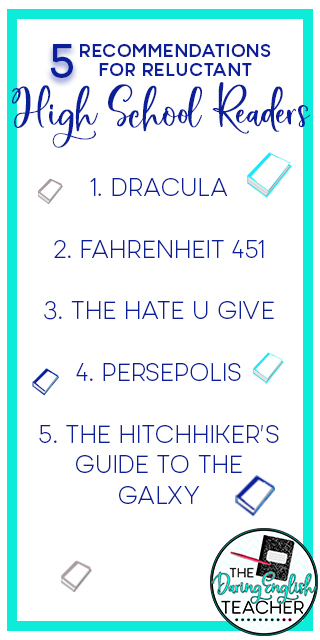Let’s face it, not every one of our students is going to love English class as much as we did. All our students have different learning styles and interests, and what we pick to teach will not always pique their interest. However, choosing a wide variety of works may be a way to ensure that all your students will get to read at least one work they enjoy. Here are a few book recommendations that hit different categories while still staying in the realm of literature. This post contains affiliate links.
1. Dracula by Bram Stoker
You probably weren’t expecting the first recommendation to be a classic 19th-century novel, but Dracula is jammed pack with action, suspense, and mystery that will be sure to entice any reader. The novel is like a roller coaster starting with ever-increasing mystery until it reaches the top with the horror revealing the famous Count Dracula only to race back down into the mystery. Students will have no choice but to continue reading to find out what’s next Dracula and his heroic adversaries.
2. Fahrenheit 451 by Ray Bradbury
Fahrenheit 451, though a little more of an excellent read because of its style of writing, is a great story for those interested in genres like science fiction and dystopian literature. Students will be intrigued by the idea of an alternate Earth in which books are illegal, and firefighters burn houses instead of saving them from burning. It may even get the creative juices flowing to have students come up with their own versions of Earth in which they switch some aspect of our society in the opposite direction.
3. The Hate U Give by Angie Thomas
For those of your students who need a more relatable story to help them get into reading, The Hate U Give is a great novel to investigate. This contemporary novel explores topics that students would have seen in books like to Kill A Mockingbird or Huckleberry Finn in a language they already use in their day to day lives. Students won’t have to struggle to decipher outdated vocabulary and explore unrelatable topics and scenarios, and instead, be able to focus more on the themes and impacts of the story. This can help students develop their critical thinking skills as it will allow them to analyze the text without the hindrance of cultural barriers.
4. Persepolis by Marjane Satrapi
For those of your students who are more visual learners or have trouble creating pictures in their heads, a graphic novel like Persepolis may be just what they need. Though short, in terms of pages, this graphic novel packs a lot of information both written and pictured. Persepolis is Marjane Satrapi’s memoir of growing up in Iran during the Islamic Revolution. With the help of pictures, she’s able to tell her story in a way that many students can easily understand. Using graphic novels like this one can help strengthen students’ critical analysis skills because they now must focus on both the words and the pictures to get the full story. Plus, students will enjoy a break from traditional reading and consider reads like this a treat.
Join my email list!
Subscribe to receive updates from The Daring English Teacher.
Thank you for subscribing! You will soon receive updates, freebies, and teaching ideas.
5. The Hitchhiker’s Guide to the Galaxy by Douglas Adams
In English class, you want your students to be able to think critically, but are students able to do that while also having a hilarious time? The Hitchhiker’s Guide to the Galaxy says yes! This short science fiction novel follows Arthur Dent, who was saved by his friend seconds before Earth is completely destroyed. From there, the two begin a journey to travel the universe while picking up some alien and robotic companions along the way. The story attempts to answer questions like, “Why do we exist?” and “What is our purpose?” through humor and hijinks. This can be a great way to get your students thinking about those same questions and could create some interesting discussions.
Teaching Resources for Any Novel:
Responding to Literature Task Cards




